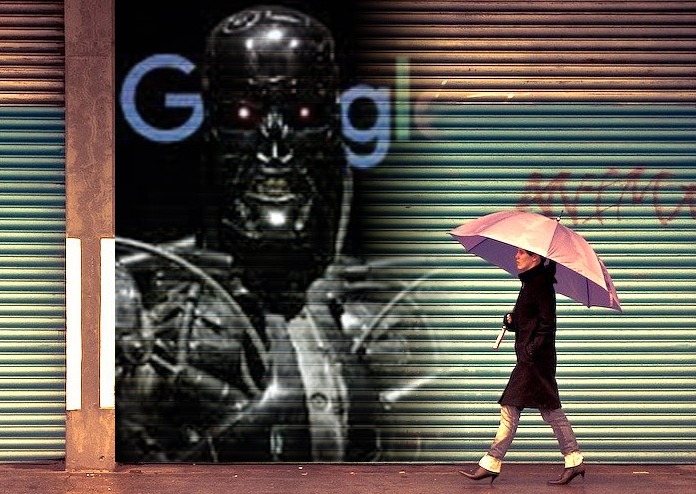There will never be a bigger plane built.
—Boeing engineer on the 247, a twin engine plane that held ten people.
The word “robot” comes from robota, which is Czech for demeaning labor. The play was written immediately after the Bolshevik Revolution and dramatizes a coldly efficient approach to an industrial workforce. Domin, the director of the world’s largest robot company, explains to Helena that the trouble with the human worker is that he “feels joy, plays the violin, wants to go for a walk, in general requires a lot of things that—that are, in effect, superfluous.”
Helena’s chief concern is with the welfare of robots, so she is shocked when Domin refers to “Robot Palsy,” a “flaw in production” that causes the more advanced machines to stop working and start breaking things. Domin’s solution to this dysfunction is to send the offending units to “the stamping mill.” Sensing correctly that this palsy is actually a form of rebellion, Helena objects, “No, no, that’s a soul!”
When it comes to complex systems ‘experts’ and pundits becme indistinguishable but for a bow tie or open collared shirt, they have demonstrably little predictive power. Expert performance is often no better than random.
What is worse, experts are usually wildly overconfident about their capabilities. The experts often have beliefs whose strength is entirely unsupported by available data. They are usually unaware that biases shape their thinking, not scientific hypothesis testing. These biases come in many forms — market fundamentalism, unrealistic faiths in the powers of government and simple models.
There is a market demand for “experts” and economists (whatever that is) who can fool the public into believing that they have great knowledge. The ones who do this best are those who have fooled themselves.
These predictions are from a recent survey of Artifical and Machine Learning researchers. When Will AI Exceed Human Performance?
Another figure:
Keep in mind that the track record for this type of prediction, even by experts, is not great:
Experts predict AI will outperform humans in many activities in the next ten years, such as translating languages (by 2024), writing high-school essays (by 2026), driving a truck (by 2027), working in retail (by 2031), writing a bestselling book (by 2049), and working as a surgeon (by 2053). Researchers believe there is a 50% chance of AI outperforming humans in all tasks in 45 years and of automating all human jobs in 120 years.
Is it time to start the stamping mills?
Another figure:
Keep in mind that the track record for this type of prediction, even by experts, is not great:
Experts predict AI will outperform humans in many activities in the next ten years, such as translating languages (by 2024), writing high-school essays (by 2026), driving a truck (by 2027), working in retail (by 2031), writing a bestselling book (by 2049), and working as a surgeon (by 2053). Researchers believe there is a 50% chance of AI outperforming humans in all tasks in 45 years and of automating all human jobs in 120 years.

